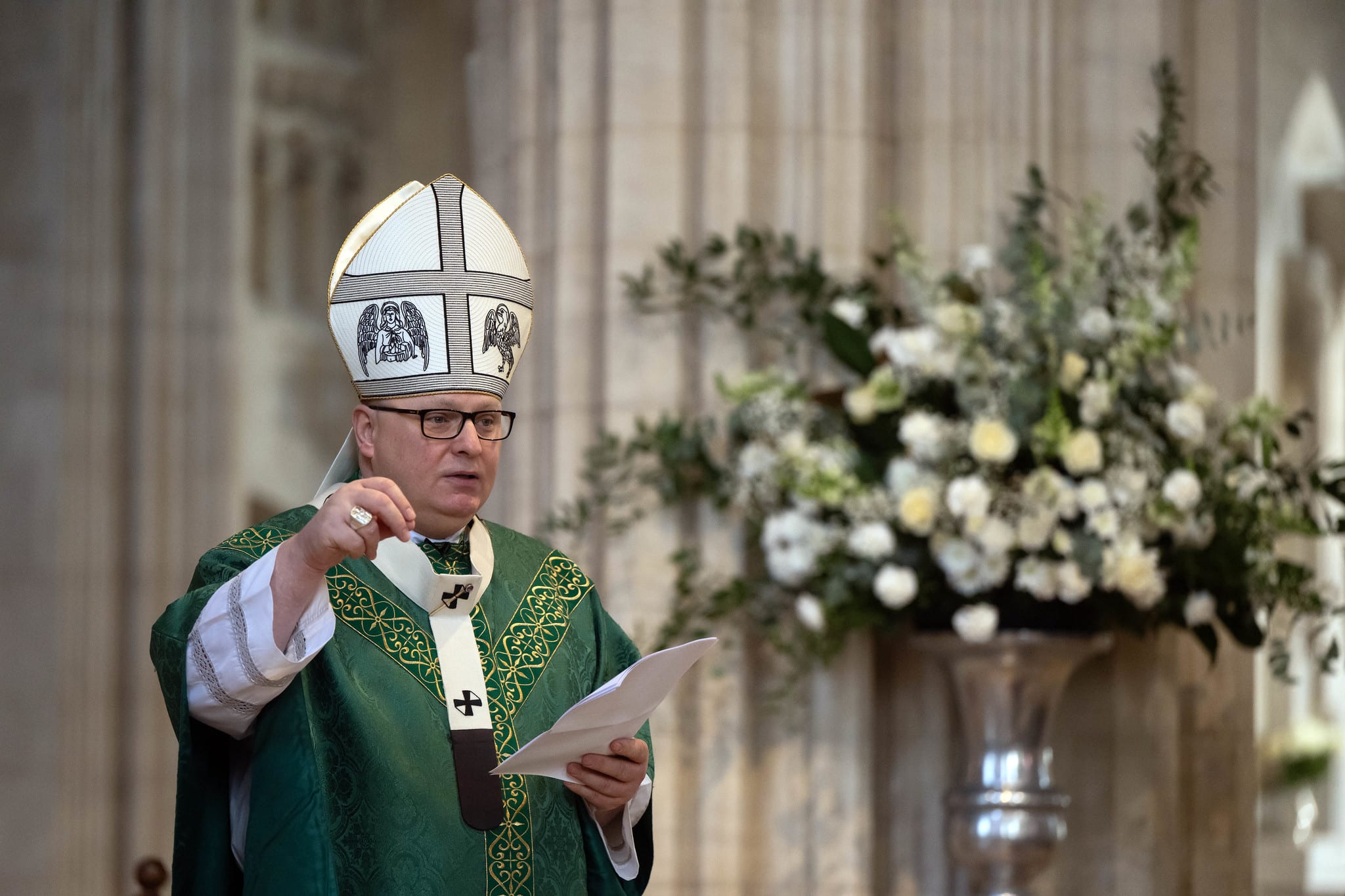Southwark archbishop: Catholics must fight ‘aggressive’ euthanasia campaign
The Archbishop of Southwark has urged Catholics to write to their MPs to ask them to resist any changes to the laws prohibiting assisted suicide and euthanasia. The Most Rev. John Wilson said in a pastoral letter that the UK was gripped by the “aggressive promotion” of doctor-assisted killing which threatened the most vulnerable members The post Southwark archbishop: Catholics must fight ‘aggressive’ euthanasia campaign appeared first on Catholic Herald.

The Archbishop of Southwark has urged Catholics to write to their MPs to ask them to resist any changes to the laws prohibiting assisted suicide and euthanasia.
The Most Rev. John Wilson said in a pastoral letter that the UK was gripped by the “aggressive promotion” of doctor-assisted killing which threatened the most vulnerable members of society since TV celebrity Dame Esther Ranzthen announced she wanted to commit suicide at the Dignitas clinic in Switzerland.
The archbishop issued the letter about a week after Labour leader Sir Keir Starmer announced his support for assisted suicide and promised to bring forward a Bill if his party wins the General Election this year. Labour is on course for a landslide victory.
In Scotland, meanwhile, Liam McArthur MSP has secured the right to introduce a Bill to legalise assisted suicide for terminally ill adults later this year.
Dr Alex Allinson has introduced a Private Members’ Bill to the Isle of Man Parliament (Tynwald) in July 2023 to allow residents to access assisted suicide or euthanasia and in Jersey the States Assembly decided in principle in November 2021 that assisted suicide should be permitted.
In his letter, Archbishop Wilson asked the Catholics of his diocese, which covers south London and some of the south east counties of England, to contact their MPs “to express your opposition to assisted suicide and your desire for the government to commit to improving palliative care provision across the UK”.
He said: “As Christians, the family teaches us to treat every human life as a gift from God, not a commodity we manipulate and dominate. Every human life is to be welcome. Every human life is to be cherished.”
He said: “The Catholic Church believes and teaches that every life is valuable, regardless of one’s physical or mental state or ability. We are called to care for those who are suffering, not to bring about their death.
“We cannot approve of any form of euthanasia and assisted suicide. Rather, we need to support individuals, families, and those who work in healthcare, so that the fundamental value of life is not eroded.”
Archbishop Wilson explained that the term “assisted dying” meant either assisted suicide – “the act of deliberately assisting another person to end their life, usually by providing them with lethal drugs” – or euthanasia, “an action or omission which, of itself or by intention, causes death in order to eliminate suffering”.
He said: “Both involve a fundamental conviction that life is not worth living and a suffering person is better off dead.
“This raises many serious issues: the pressure which will fall on people with debilitating and life-shortening illnesses who are made to feel a burden to their family or society; the slippery slope which moves from there being an option to end one’s life to this becoming a duty; the impact on the ethos of medical and healthcare workers when those we trust to care for us also become those who might end our life; and the challenges of obtaining consent in the context of suffering.
“Elevating individual choice above any concern for its wider consequences can deform a culture of life into a culture of death. Experience shows, not least with abortion legislation, that whatever safeguards are initially assured, restrictions are trampled.”
He continued: “The charity, Marie Curie, estimates that by 2033, around 660,000 people with palliative care needs will die each year in the UK.
“Without improved funding, the NHS and hospice charities will be unable to meet this growing need and address the existing gaps in end-of-life care across the UK.
“Yet, the answer does not lie in assisted suicide, but improving palliative care provision. This includes better funding, training, and accessibility to ensure that everyone who needs palliative care can receive it.”
Archbishop Wilson added that there are “grave concerns” about the dangers of coercion if assisted suicide is legalised.
He said: “In Canada and Oregon, a significant percentage of individuals who died by medical assistance reported being motivated by being a ‘perceived burden on family, friends or caregivers’.
“Once assisted dying is legal, there is a risk that vulnerable, disabled, and elderly people will feel obliged to consider it so as not to burden their loved ones. This fundamentally changes the relationship between healthcare professionals and their patients.
He said there has been a rapid expansion in the eligibility criteria for assisted suicide and euthanasia in jurisdictions where it has been permitted.
In Canada, Medical Assistance in Dying (MAiD) was legalised in 2016 for the terminally ill, but the requirement for death to be ‘reasonably foreseeable’ was removed in 2021, he said, adding that “Canada is also considering extending MAiD to include people with mental illness and minors”.
“This expansion is almost inevitable under human rights challenges, as permitting assisted dying for one group of people, but not others could be considered discriminatory,” said Archbishop Wilson.
“In the Netherlands, conditions such as tinnitus have been considered legitimate grounds for euthanasia.
“Attempts to limit assisted suicide to terminally ill patients with fewer than six months to live are fraught with problems.
“It is extremely difficult to determine terminal illness prognoses with certainty, and the accuracy of prognoses can range from 78 per cent to a mere 23 per cent.
“Legislation in Oregon, USA, has been used to permit assisted suicide for conditions including anorexia, diabetes, hernias, and arthritis. In the Netherlands and Belgium, euthanasia eligibility has expanded to include infants and children of any age.”
He said: “Supporters of assisted suicide often claim that they are upholding individual autonomy and the right to choose how and when one dies. This completely contradicts modern suicide prevention schemes which seek to preserve life.
“Furthermore, permitting assisted suicide sends a message which undermines human dignity, namely that some lives are simply not worth living.”
Archbishop Wilson also urged Catholics to write to their MPs to ask them to oppose attempts to manipulate Government’s Criminal Justice Bill with extreme abortion amendments to permit abortion up to birth.
(© Mazur/cbcew.org.uk)
![]()
The post Southwark archbishop: Catholics must fight ‘aggressive’ euthanasia campaign appeared first on Catholic Herald.














